The World Health Organization (WHO) is seeking to identify, track and restrict the novel virus from the Coronavirus family called COVID-19. Until definitive treatment is established, self-care has been one of the most important health recommendations that shown to be one of the most effective coronavirus tips in breaking down the transmission chain during the outbreak of novel coronavirus pandemic.
The role that we can currently play at AriaMedTour in breaking down the transmission chain and helping our peers is to prepare guidelines containing tips about novel coronavirus for preventing infections, helping improve and cure the virus faster, as well as slowing down its outbreak speed.
This article has been prepared by a specialist medical team and is based on WHO approved sources.
What are novel coronavirus symptoms?
So far, thousands of people have been infected with the virus and many have died. Meanwhile, a number of people infected with the virus have also been treated and fully recovered.
You can protect your health and that of others by recognizing the symptoms of coronavirus and observing the health tips provided by the World Health Organization (WHO).
Fever is a common symptom of coronavirus
Fever can be high in this disease. The only way to make sure we have a fever is to use a thermometer, and the person’s feeling is not a good criterion to judge the fever. If you do not have a thermometer and if you feel hot by touching your face or chest, you may have fever.
Frequent dry coughing might be a symptom of coronavirus
Coughing does not mean a single cough. It means that you cough frequently. Usually Covid-19 is accompanied by dry cough. Unlike dry cough, runny nose is not considered a common symptom of the new coronavirus.
Respiratory disorder and shortness of breath are serious signs of coronavirus disease
If the disease shows only these two symptoms of fever and cough, its severity is mild, but it can be severe if shortness of breath is added. Cases of severe or serious illness are when respiratory disorder and shortness of breath occur. Here is the time you should go to medical centers.
Shortness of breath means difficulty in breathing, feeling of pressure, tightness and pain in the chest, the need for more air and breath, and in severe cases suffocation.
In severe cases, the lips and face may appear bruised and bluish, and the individual may be confused and unconscious, especially if the fever is high.
Feeling of weakness, fatigue and pain in the body
Feelings of weakness, fatigue, and body pains and aches may also accompany these symptoms, and the individual may not be able to perform the normal activities of life.
Sore throat
A small percentage of people infected with coronavirus may have a sore throat.
Headache
Headache in another symptom of novel coronavirus disease. However, the severity of this symptom may differ from one person to another.
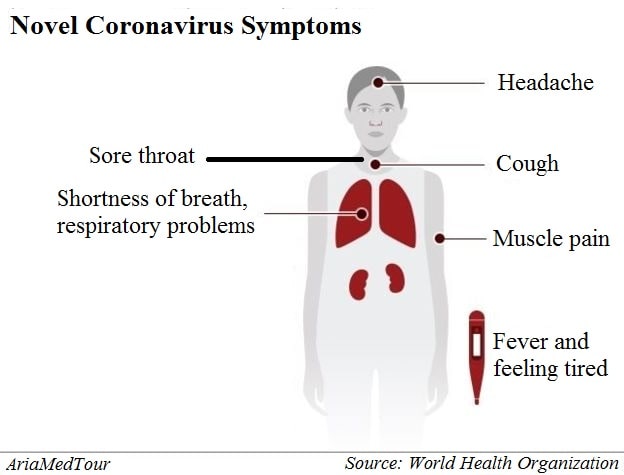
Symptoms of novel coronavirus (COVID-19)
The early symptoms of Corona virus infection are usually fever, then dry coughs. Shortness of breath appears after about a week. Some patients require hospitalization. Symptoms may appear between 2 and 14 days after exposure to the virus.
Know more about the symptoms of the new coronavirus in this video from the WHO.
What are the recommendations and tips to prevent the spread or infection of novel coronavirus?
Here are the most important recommendations and tips by WHO to prevent yourself from being infected by the novel coronavirus (Covid-19).
Wash your hands regularly
Wash your hands regularly and thoroughly for at least 20 seconds with soap and water or with an alcohol-based disinfectant.
Washing your hands with soap and water or with an alcohol-based sterilizer (at least 60%) is one the most important and crucial tips for eliminating the viruses that may have been transmitted to your hands.
Avoid touching your eyes, nose and mouth with your hands
Avoid touching your eyes, nose and mouth with hands. The hands are exposed to different surfaces and may be contaminated with the virus. Once your hands are contaminated with the virus, they can easily transmit it to your eyes, nose and mouth when in touch with them, allowing the virus to enter your body and make you sick.
Watch the following video on how to protect yourself from the new coronavirus according to the World Health Organization.
Practice respiratory health
Make sure you and those around you are adhering to respiratory health by covering the mouth and nose with the bend of elbow or a tissue when sneezing and coughing and throwing away the tissue immediately.
Like common cold and the flu, this disease is also transmitted through the respiratory secretions of the patient when he/she coughs or sneezes. Droplets stay on the surfaces, and the virus is spread through the hands of others.
People get the disease when they touch their mouth, nose, and eyes with their contaminated hands.
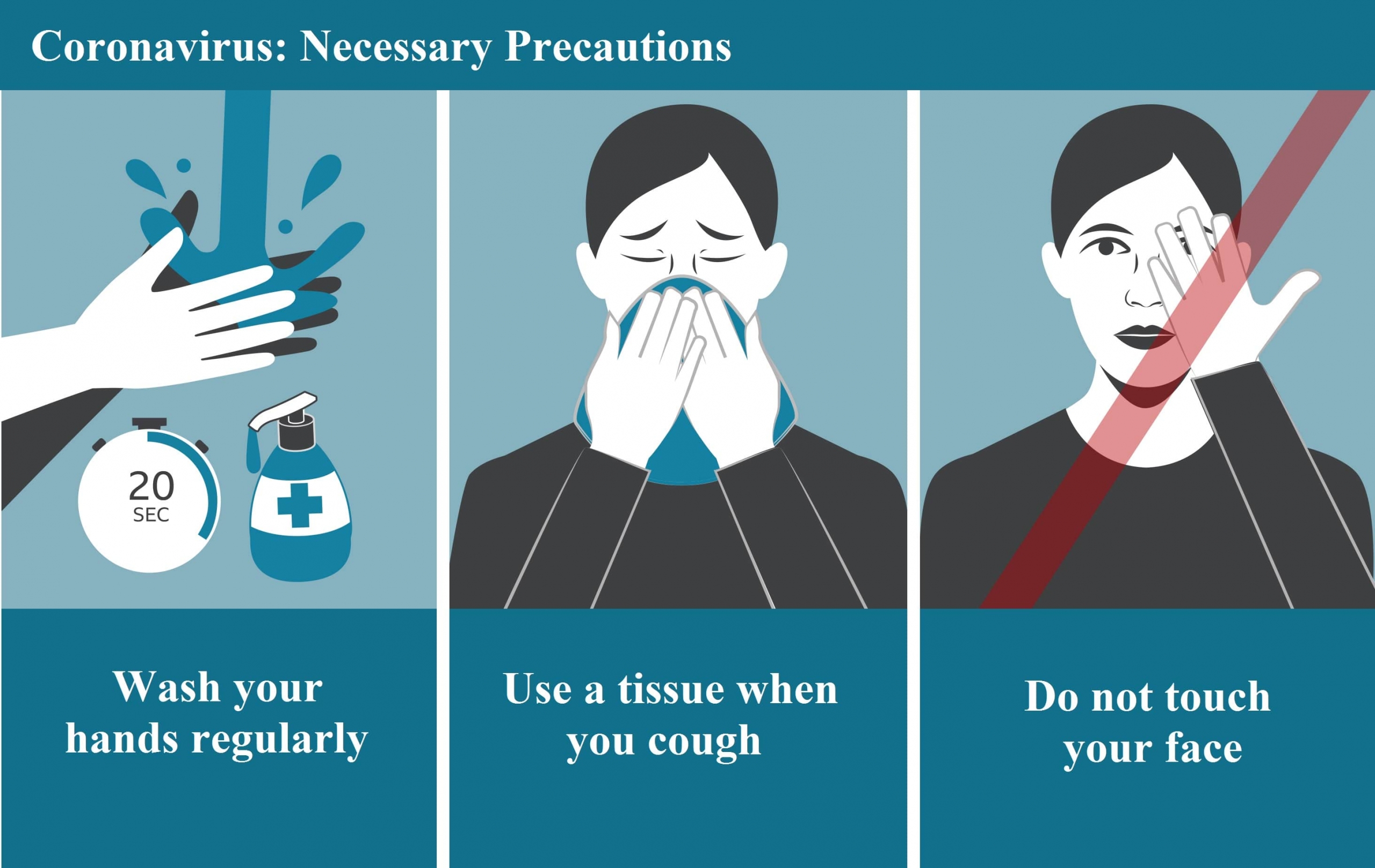
Novel coronavirus prevention tips.
Keep a standard distance from others
Stay at least 2 meters away from those who cough or sneeze.
When coughing and sneezing, tiny droplets are thrown out of people’s nose and mouth. If you are very close to them and to someone else who is infected with the virus, these tiny droplets that contain the COVID-19 virus will enter your body by breathing.
Watch to know why the WHO recommends to avoid close contact with people having fever and cough for not getting infected with the new coronavirus.
Do not get out of your house
Stay at home. Do not go to work, school, or other public places and do not use public transportation.
Even if you have some coronavirus symptoms or feel unwell, or even if you have minor symptoms such as headache and runny nose, stay at home until symptoms fade away. Refraining from communicating with others and going to health centers will help the health centers do their job better and protect you and others against the risk of COVID-19 and other viruses.
If the patient’s lungs are infected with coronavirus, the patient may be hospitalized based on the physician’s diagnosis and physical condition. If the lung is not too involved, the patient will not need hospitalization. The only thing that is needed is to stay at home and take care of themself.
Personal hygiene, daily bathing, drinking warm herbal teas, resting at home and eating fruits are sufficient for people who do not need to be hospitalized.
Those who have a mild coronavirus infection may develop worse disease if they unnecessarily refer to the hospital, so resting at home is recommended for those people.
If you have concurrent fever, cough and shortness of breath then contact your doctor immediately, because these symptoms may be due to respiratory tract infection or other serious problems. Tell your specialist about your recent travel records or any contact with other travelers.
Elderly and people with any underlying disease should take the virus more seriously
Most concerned about this virus are old people and people with underlying problems such as immune deficiency, uncontrolled diabetes, organ transplants, cancer, underlying lung disease, and so on.
Frequently asked questions about novel coronavirus
How many days is the incubation period of novel coronavirus?
Experts say it takes an average of five days for a person infected with the virus to show symptoms. However, some patients show symptoms after much longer time.
According to the World Health Organization, the incubation period of novel coronavirus (COVID-19) is up to 14 days, but some researchers say it can take up to 24 days. For this reason, the coronavirus quarantine period is suggested in many countries to be 14 days. During this period, the symptoms will be shown on 99% of the infected people who develop symptoms.
Does the disease improve immunity in the recovered person?
It is still too early to answer this question decisively. The virus has spread since late December 2019, but the experience we have with other viruses, including other types of coronavirus, is that the recovered individuals produce antibodies that protect them against the disease.
No recurrence was seen in the cases of SARS and other corona viruses. Of course there are reports from China that people who have been discharged from the hospital have tested positive for coronavirus, but we are not sure about those tests.
Is a vaccine made for the novel Coronavirus?
There is currently no vaccine for this virus. So the only way to prevent its spread is to early diagnose the patients and treat them in quarantine.
We must look for people who have been in contact with the virus patients and monitor them.
The next step is to restrict travel and prevent public gatherings, a practice that has been implemented in some countries, such as China and Italy, where the virus has spread.
What is the probability of dying of coronavirus?
Researchers now believe that between 5 and 40 out of every 1,000 people with coronavirus die. The most accurate estimate is 9 person per thousand, or about 1 percent.
However, other factors are involved such as age, gender, health status and, of course, the health care system in your area.
Does coronavirus cause pneumonia?
According to the World Health Organization, the new coronavirus might cause pneumonia in severe cases. However, this effect is not common in mild cases.
Share this article:
Before & After Photos
Medical & Cosmetic Treatments
Latest Articles

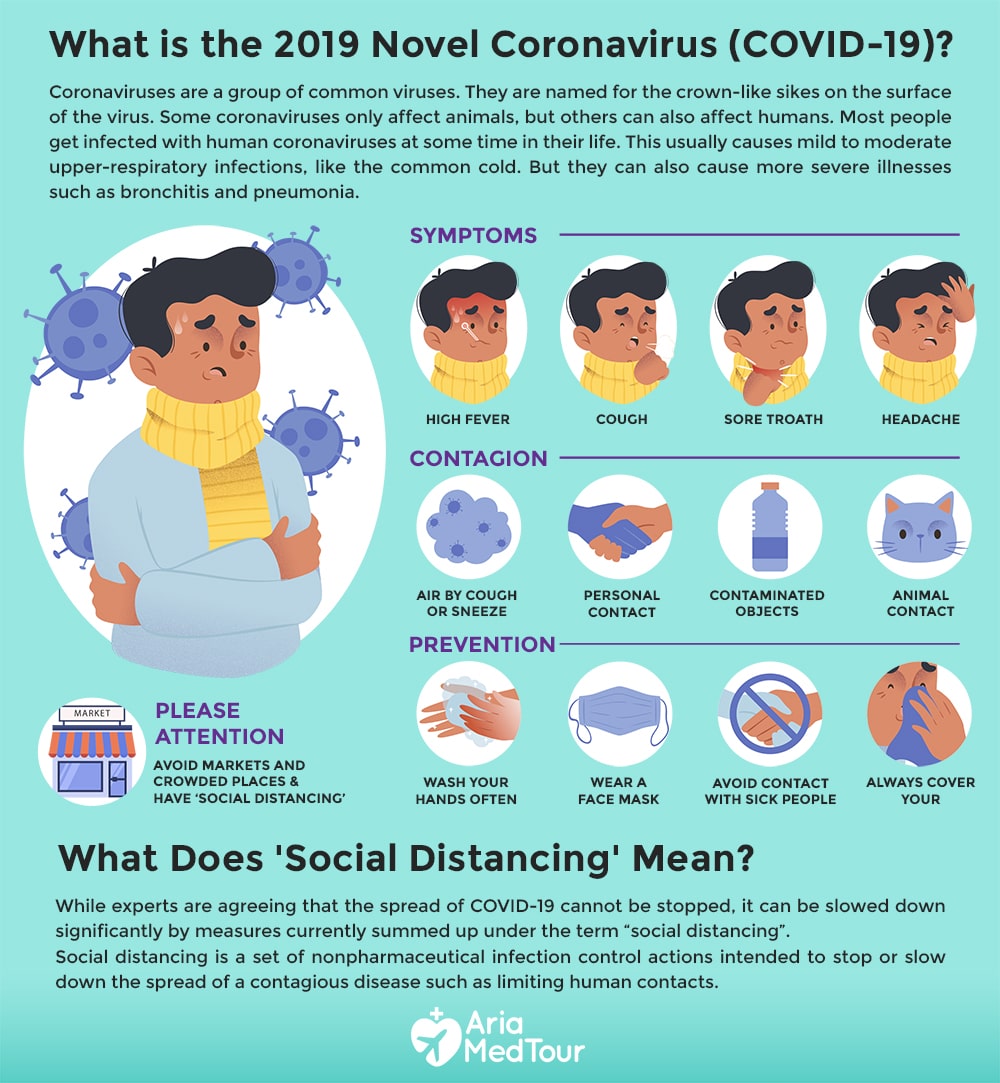














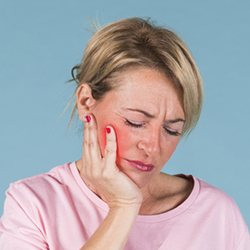





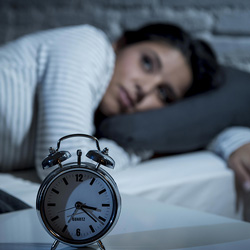








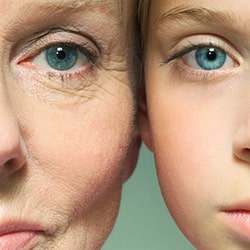

I have a little dog in my home it is pomeranian dog. Can coronaviruses be transmitted from person to animal? i mean is my dog in dangerous situation ?
Dear Mia,
Although some dogs have been recently tested positive for the coronavirus, until now there is no decisive evidence that animals can be infected by the virus from humans.
If you want to find out you have Corona or not, Take a deep breath and then close your month and also hold your nose it means do not breath for 5 seconds.
If you have a cough before this 10 seconds, you have corona virus if you don’t cough it means you are healthy.
This is a false information circulating on social media.
Holding breath for 10 seconds is only difficult in case of an acute viral infection. Holding breath for 10 seconds without difficulty and cough does not indicate in any way that the person in not infected with coronavirus.